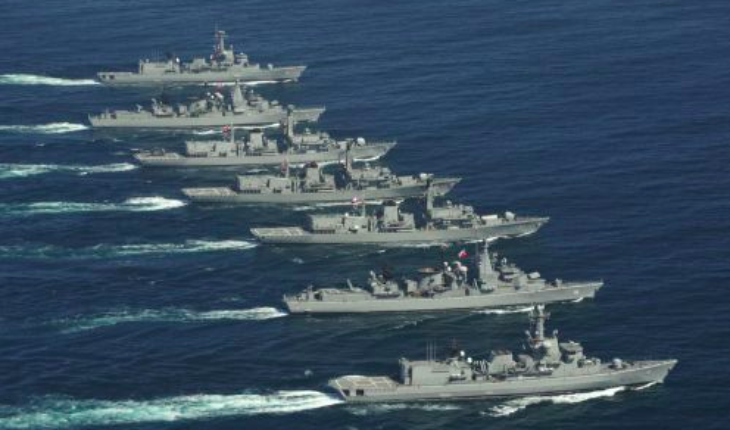The end of World War II in the Pacific theatre left as a question a question that our country, because of its special geographical condition, replied as little as a Republic: it was only a matter of time before the immense ocean that covers much of the orb, claimed its position as an articulator of planetary development. Today, we no longer doubt that this is the case, and seventy years later, from its banks and across its waters, the world’s major economies trade their trade, contributing in large part to justifying the figures in the maritime report of the Conference of 2018, the United Nations trade and development average growth rate in global maritime trade will be 3.8%.
As if the above were not enough to determine the importance of the sea for the development of nations, population density projections place more than 80% of the population living less than 60 miles from the coast, and something more significant, than 75% of main cities are located on the coast. Thus, it is not difficult to predict that, in the coming decades, the Pacific will concentrate on its environment, as never before in human history, the greatest accumulation of economic activity, and the maritime transport already mentioned, will add fishing activity, tourism and harnessing the energy and mineral resources that lie beneath its surface.
As is easy to imagine, this great concentration of opportunities for development, is accompanied by all kinds of risks and threats, of the most diverse nature, that the increasing complexity of the world stage reminds us on a daily basis, and if the Pacific is considered like the ocean of the 21st century, we must be aware that it also locates most of the interests of coastal nations and, therefore, the possible conflicts of the near future.
In this environment, our country is not, and cannot be, a mere spectator. Our maritime status and that reality that we have already begun to face, forces us to grant our security an equally maritime nature, for it is in that scenario that the interests that will allow us to achieve our development as a country will be deployed, and therefore, the well-being of the population.
The National Navy has understood this. In a globalized world, risks and threats can only be faced in an environment of strategic cooperation, and following the guidelines of our foreign policy, it has overturned much of its operational work, to develop and refine the capabilities that allow it to operate with other Asia-Pacific Navies to protect our interests; obtaining in the early years of this century, the recognition of them for the efficient and effective performance of their crews.
Alongside the above, being polyfunctionality a current requirement for the Armed Forces, the Navy has sought a development of naval and maritime forces that maximize the versatility of the media, with the aim of achieving maximum efficiency in the fulfilling all the roles required by the State, not forgetting that, as a matter of priority, it is due to the constitutional obligation to defend maritime sovereignty and security.
In this context and the time of renewal of part of our main surface force, we believe that we do not err in appreciating the great interest with which we follow the efforts that lead us to the construction of the first combat units in our country. The first steps have been taken. The construction of four patrol boats of maritime area, the modernization of a submarine – which required to intervene its pressure hull – the construction of the scientific research vessel “Cape Horns”, one of the 5 most advanced in the world, and the current construction of a new Antarctic vessel, the first icebreaker built in the Western South Pacific, allows us to appreciate that the Navy’s Shipyards and Masters now have an infrastructure, technical capacity and qualified personnel that allow it to carry out the maintenance, repair, modernization and construction of highly complex vessels.
Without losing sight that such projects by their extension and resources involved require the will and political decision, the construction of combat units in the country should always be the first choice, because it represents huge advantages from the point of point not only military, but also strategic for the nation’s development: the technological transfer that this would entail, as well as the clusters associated with this type of construction, are just two examples of this.
A phrase written two hundred years ago by the British traveler and writer Maria Graham should be the introduction and the corollary of this column: “Chile is such an essentially maritime country…, that if I were a legislator, I would direct all my attention and all my interest towards the sea… Chile will be a maritime country… or it won’t be anything.”
The content poured into this opinion column is the sole responsibility of its author, and does not necessarily reflect the editorial line or position of El Mostrador.





